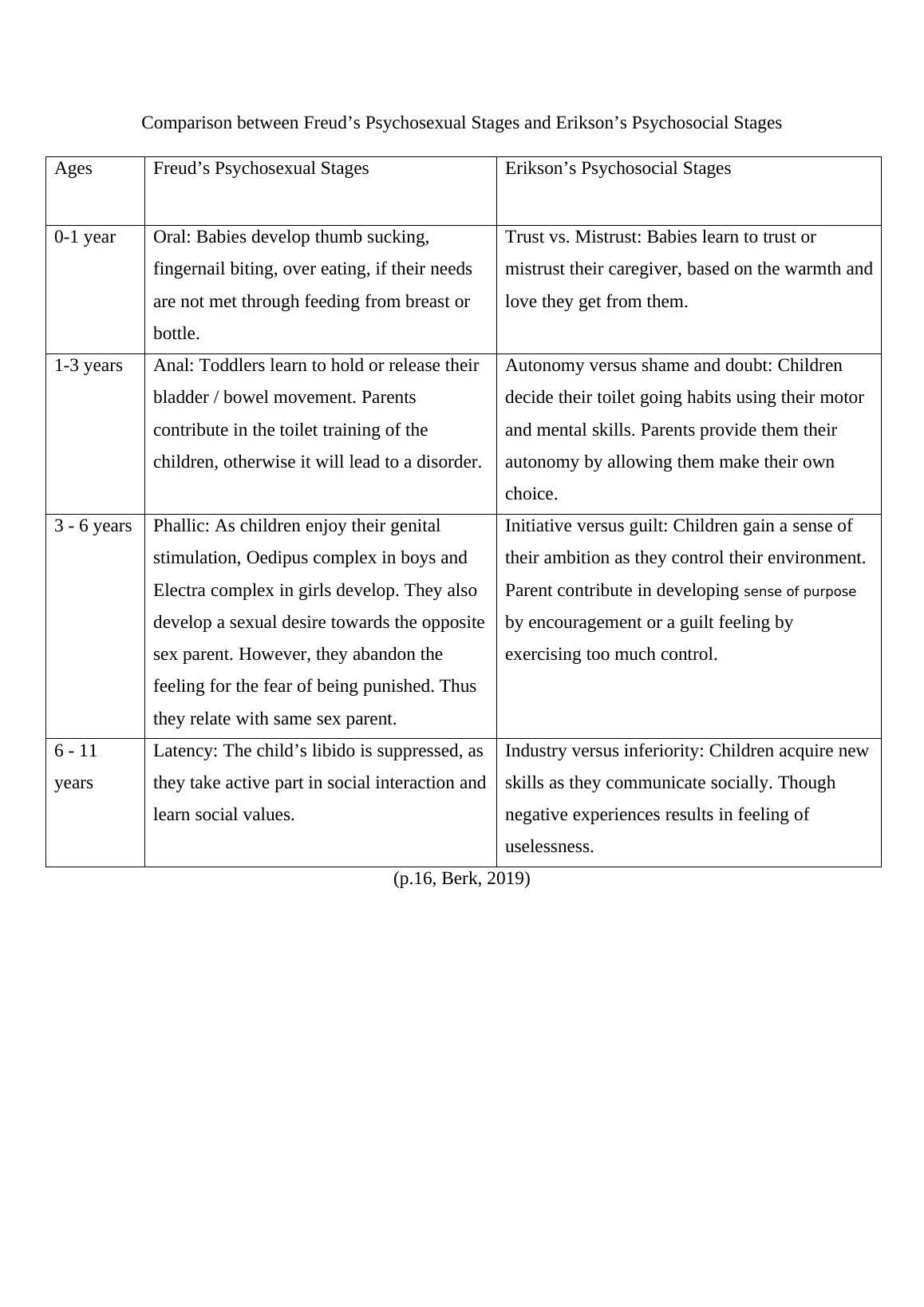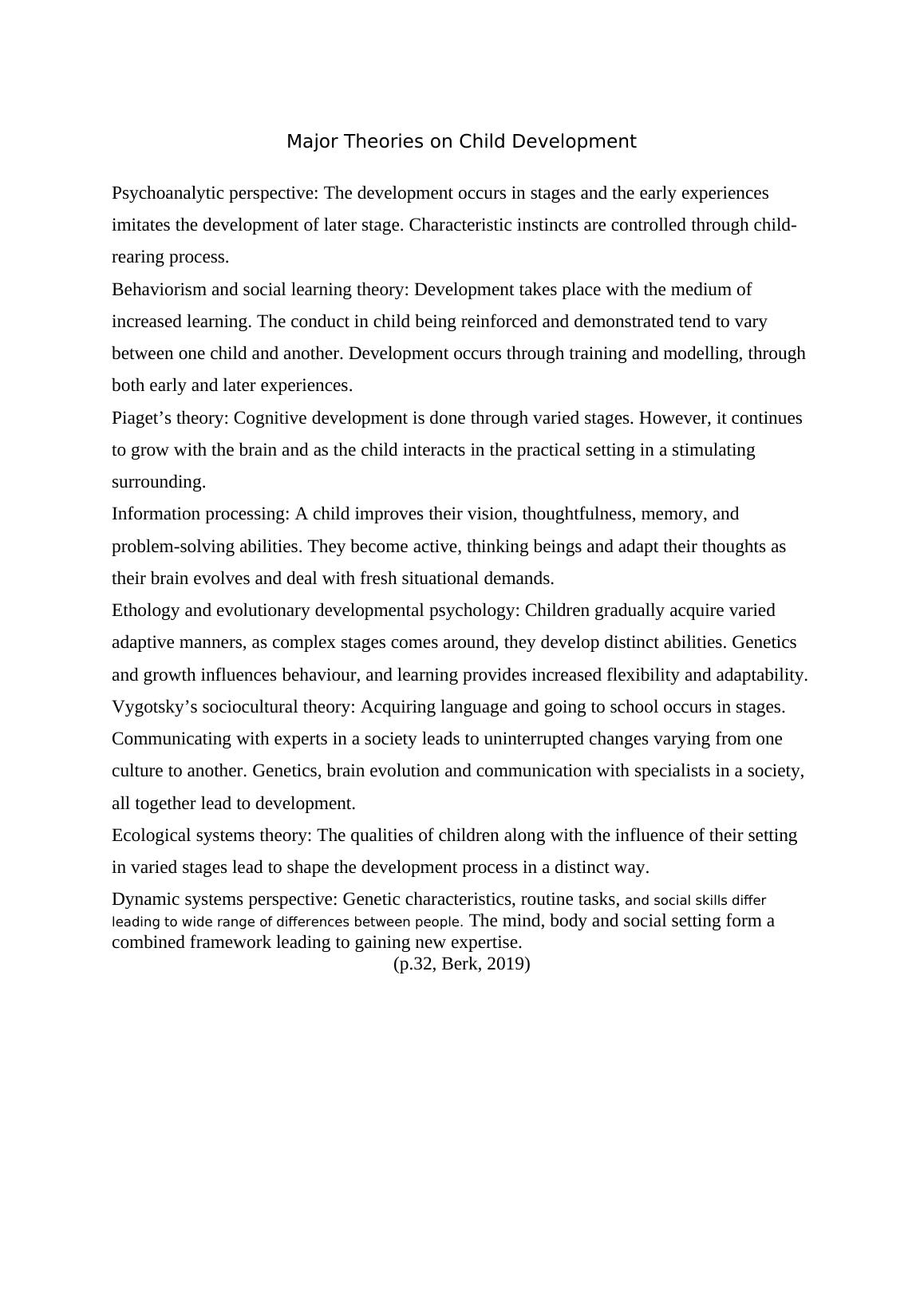Comparison between Freud’s Psychosexual Stages and Erikson’s Psychosocial Stages
Added on 2023-04-17
4 Pages628 Words77 Views
End of preview
Want to access all the pages? Upload your documents or become a member.
Freud’s Psychosexual Stages and Erikson’s Psychosocial Stages
|4
|562
|219
Assignment on Erikson’s Stages of Life
|5
|912
|19
Psychosocial Development in Child: Stages, Factors and Significance
|8
|1819
|137
Applicability of Erikson’s Theory of Psychosocial Development in Child Development
|6
|1563
|288
GROWTH AND DEVELOPMENT OF EARLY CHILDHOOD.
|10
|2843
|1
Human Development across Lifespan
|7
|1766
|72


